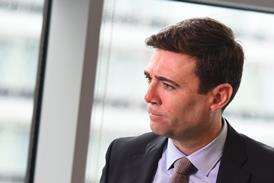- Police report obtained by HSJ shows gaps in fraud reporting
- Quality of local counter fraud investigations criticised by City of London Police’s Economic Crime Academy
- News comes as national counter fraud services are overhauled and budgets cut
Significant amounts of fraud are going undetected in the NHS because trusts and their contractors lack the expertise to spot it, a police report obtained by HSJ reveals.
The document, prepared for the NHS’s national counter fraud organisation by the City of London Police’s Economic Crime Academy, criticised trust level counter fraud teams.
It said local counter fraud services were patchy across the NHS and 20 per cent of trusts were making 50 per cent of fraud reports.
“This cannot be explained by trust demographics alone,” the report said, adding: “It is clear that there is a significant under reporting of the issue, which by definition must lead to under detection and enhanced financial loss for the NHS as a whole.”
It said many trusts contract out the work to an individual contractor or audit firm, which often lack “investigative competence”.
All reports of fraud are supposed to be logged on NHS Protect’s IT system, but the City of London Police said: “This is being used to varying degrees across the local counter fraud services network. This tends to reinforce the under reporting.”
NHS Protect investigates complex and national level cases with local teams responsible for smaller cases. NHS Protect does not manage local counter fraud services and the report, released to HSJ under the Freedom of Information Act, recommended that it take a more “directional” role supporting them.
This is not what happened with the creation of the NHS Counter Fraud Authority, which is currently running in shadow form before replacing NHS Protect later this year.
The organisation has seen a fall in full time employees from 160 to 140 and the closure of NHS Protect’s training centre, which worked with local counter fraud staff. NHS Protect’s budget fell from £10.4m in 2015-16 to £9.9m in 2016-17.
The police report said the withdrawal of the inhouse training function, which was based in Coventry, “will have a major impact on the ability to develop and deliver learning programmes… and the maintenance of investigation standards”.
The report also highlighted a problem of NHS Protect being alerted to an issue, passing it to local services, the police or another body and appearing to have no process to determine what then happened.
It said: “Examples were given of investigations passed to NHS England and an analysis of the data would appear to show little evidence of action being taken thereafter by that body or the company commissioned.”
Another issue identified with the national service was having a structure in place for identifying potential critical incidents.
The example given was the complexities of arresting heart and lung specialists in a recent case.
The report, delivered to NHS Protect last year, said that after the debrief into Operation Kyrenia, which led to the prosecution of four people over a £1m fraud: “If all the perfusionists were arrested, this would have meant cancelling all heart operations within that geographical area for an unknown period. There is significant potential for a critical incident to develop from [an NHS Protect] investigation.
“There was no obvious structure or process identified to us for managing and identifying a critical incident.”
The report said there are roughly 240 fraud investigators across the English NHS and the quality of relationships with organisations varied.
It said some counter fraud staff “had outstanding support, while some had the complete opposite”.
The document added: “Fully accepting the political challenges surrounding these relationships, it is our belief that the need to provide chief executives with the true and accurate picture of the threat and risk they carry around the value of fraud would be a significant step forward.”
Downloads
City of London Police report into NHS Protect
PDF, Size 10.06 mb



























7 Readers' comments